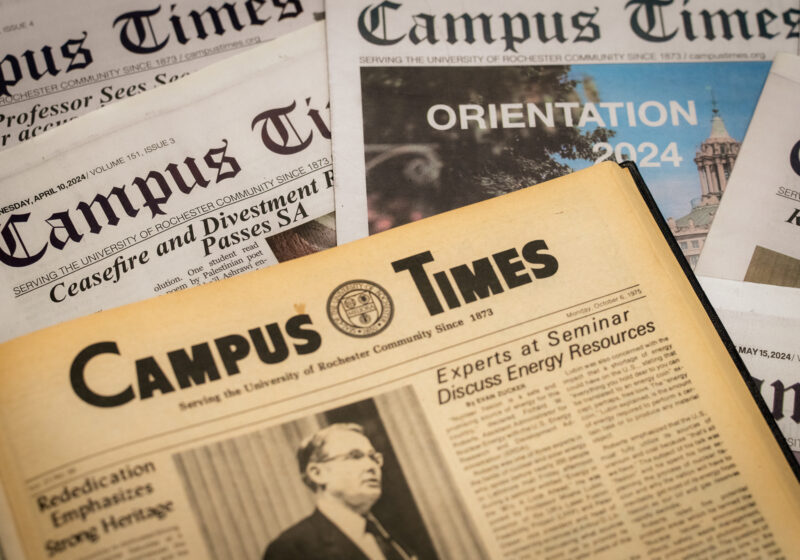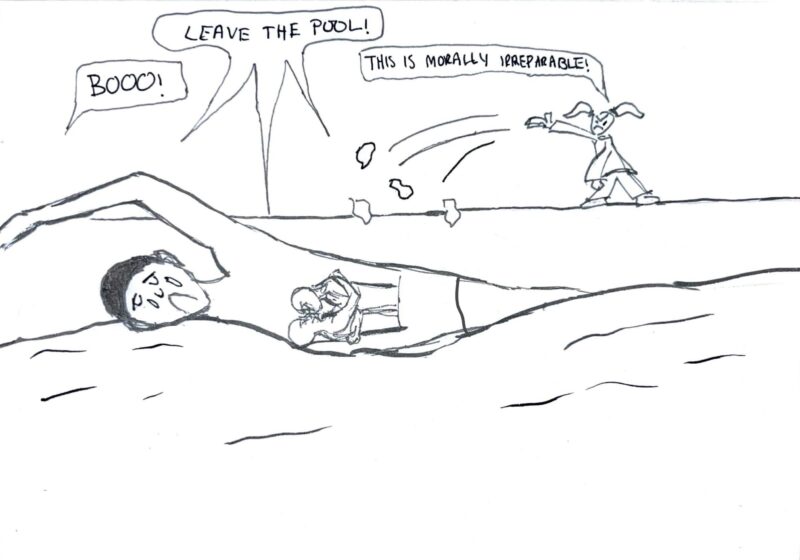Want a paid position working on the staff of the Campus? Just talk to Managing Editor Will O’Brien from the class of ’25!
1925, that is. Welcome to the world of the Campus, our school’s newspaper 100 years ago. To start — yes, you read that right — our staff used to be paid. Our newspaper was once a “profit-sharing business,” with a “financial return” for student editors and business staff members.
Along with plenty of advertisements, the Campus staff was funded by the sale of the paper — 10 cents for a single issue, or $3 for an annual subscription. Today of course, we are partly funded by SA via SAAC, and our advertisers to ensure every copy can be free of charge for all students.
Advertisements took up about a third of the page space in that week’s edition, with promises ranging from a $1 leather belt “that everyone’s wearing” to genuine Lehigh Valley Coal. One prominent ad from General Electric subtly challenged traditional gender roles claiming that “if father did the washing just once … there would be an electric washing machine in each home before next Saturday night.” Even knowing that the 1920s was a period of social change, it’s surprising to see an ad explicitly calling attention to the value of women’s domestic labor.
Another trend in this issue was a string of articles about the incoming first years (or “frosh” as they were called). In the Notes to the Editor section (precursor to our modern Opinions section), upperclassmen hot takes ranged from giving the new frosh advice to complaining that too many of them were from out of town. (One unnamed student speculated that as the number of non-Rochesterian students grew, the more close-knit the local “Rochester men” would become). Fascinatingly, with an incoming class size of 136 (the largest in our school’s history at that point), the Campus had room to print the names and hometown of every single member of the class of ’28, as well as all new transfer students.
Tensions between the “frosh” and “sophs” rose during an event put on by the Traditions Committee: the Proc Battle. From what I can gather, this was a recurring event where upper and underclassmen staged a mock battle — with real wrestling — across campus and the surrounding city streets. The spat reportedly ended in a tie; after a particularly bloody scrap, both teams agreed that perhaps they should shift their priorities from the battle to their first day of lectures the next day. Speaking of lectures, students were urged to attend Dr. Dexter Perkin’s new lecture series on the ongoing Reconstruction of Europe following the Great War.
But most interestingly, this 1924 edition also marked the 50-year anniversary of UR’s first newspaper. The unnamed author of an article on the topic of this “golden anniversary” stated that “the crude methods of reporting and news writing in those days have been improved … but still the Campus cherishes the memory of as venerable and illustrious a past as that of any day modern paper.” (Big talk from an editorial team whose front page headlines included “Twenty-Four Men here from Other Colleges”).
Yet this century-old article also reminds me that I have no idea who might be reading this very article 100 years from now. Perhaps our reporting will be seen as crude and quaint as well. Although a lot has changed, it’s nice to know that as a CT writer, I’m a part of something bigger than myself. I think the unnamed author would feel the same based on how he ended his piece: “The new Campus has little in common with that which the students of 1880 and 1890 decades knew, but it is glad to look back over a history which has now passed the fifty-year mark.” I intend to continue this series which I’m calling “Campus Times in Another Time” in two weeks with the Oct. 3, 1924 edition.
Until then, congratulations to both classes of ’28, and here’s to another 150 years!






